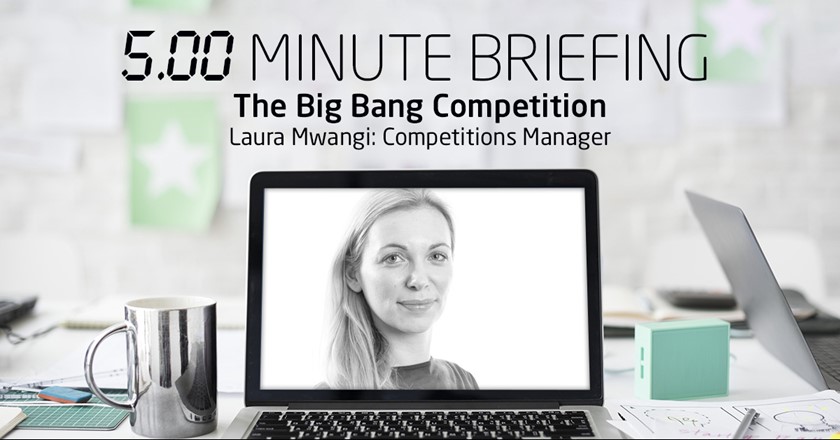Jun 12, 2018
Life changing opportunities

The Big Bang Competition provides students with an opportunity to gain recognition and reward for STEM work that they have completed. Here Laura Mwangi, who manages The Competition gives her view on what makes it special.
What do you think young people get out of entering The Competition?
Competitors have the opportunity to present their work to our judges, who are all STEM professionals. All entrants are given feedback on their work and suggestions for next steps so they can continue on in their STEM journey.
Those that go on to the finals get to meet likeminded students, they meet past competitors and judges, network with business and industry and enjoy all that The Big Bang Fair has to offer.
Finalists compete for a range of prizes, including cash prizes, experience days and the chance to compete in international competitions. The overall winners are crowned the UK Young Engineer or GSK UK Young Scientist of the Year.
How many students/projects are involved in The Big Bang Competition each year?
Last year around 1,100 projects (approx. 2750 students) entered The Competition via the regional and online heats and we’re hoping to get even more young scientists and engineers submitting projects this year.
The Big Bang Competition has changed a bit since you’ve been running it, what do you think are the best changes?
One of the most important changes we’ve made is to provide students in all age categories with the opportunity to take home the title of UK Young Engineer or GSK UK Young Scientist of the Year. Previously only senior students were eligible – we think this system is fairer.
This year we introduced the ‘Competitors’ Choice Award’ which gave entrants to opportunity to put themselves in the judges’ shoes, which was great.
Recently, we established an affiliation with the Intel International Science and Engineering Fair (ISEF), which means that selected winners of The Competition can go to the US to compete against the best young scientists & engineers in the World.
The two students we sent this year had an amazing experience and both won prizes, which was fantastic!
What do you like best about working on The Big Bang Competition?
I love being part of a programme that gives young people the opportunity to be rewarded for their hard work and provides them with opportunities, that are potentially life changing, that they wouldn’t otherwise have.
What are some of your favourite projects?
Some of my favourite projects are the ones that start as a simple idea but could make a real difference to people’s lives. A couple that spring to mind include: Cerebral Palsy Mobility Device (a chair designed to give people with cerebral palsy more independence) and Can making banana tree paper reduce deforestation? and Vitamins & Minerals from Recycled Foods (a research and design project which looked at whether vitamin and mineral supplements could be developed out of recycled foods).
What would you say to anyone thinking about entering a project?
Go for it! You have nothing to lose and so much to gain.
What’s on the horizon for The Big Bang Competition?
This year we’ve changed the online application process to give students the option to upload a video entry for their project, instead of a written application. We’ve also introduced an ‘early bird deadline’ to allow students to enter their project before 29 July 29 and find out sooner if they’ve made to the finals.
Next year, we plan to have some exciting CPD opportunities available to teachers attending The Fair.
The Big Bang Competition is open to all UK residents, aged between 11 and 19 and in full-time secondary education or training. Individuals or teams who have completed a science or engineering project at home, at school or in another context can apply online at www.thebigbangfair.co.uk/competition
< Back to News & Views